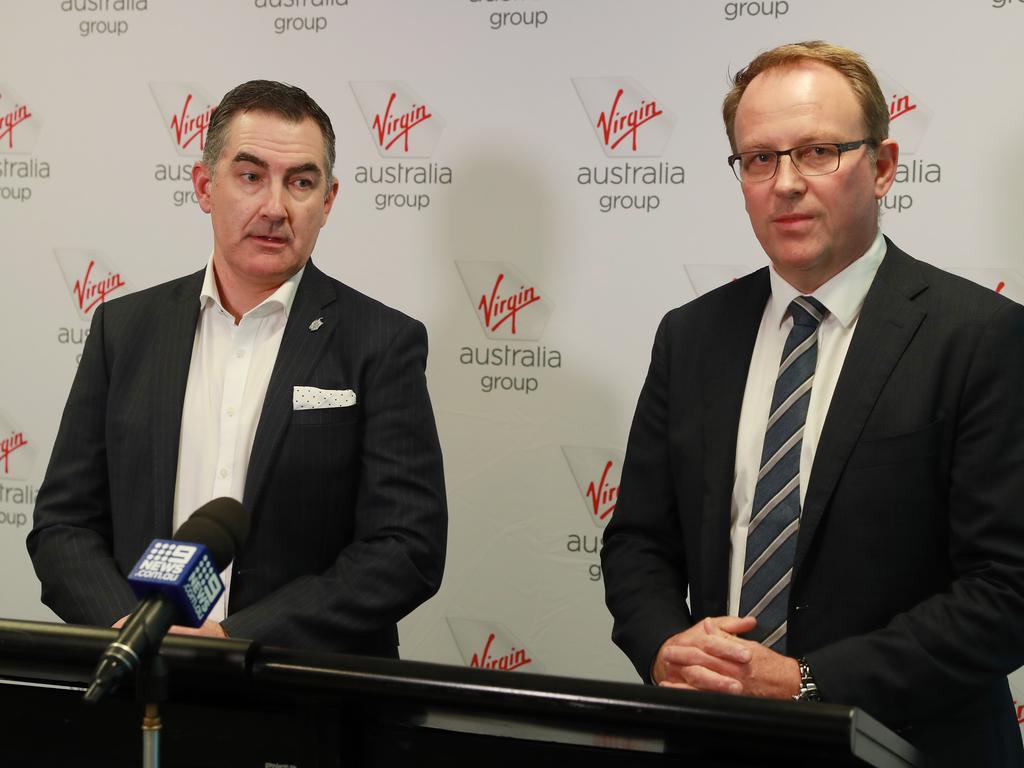
Just how long the travel boom will last is likely to be at the top of a list of questions that fund managers have about Virgin Australia when they are visited by its bankers in the days ahead, promoting its initial public offering.
As reported online by DataRoom on Friday, investment banks working for Virgin Australia have started booking meetings with offshore investors to educate them on the $3bn airline’s financials ahead of an initial public offering in May.
It is understood that Virgin and its advisers will head offshore in the next few weeks for limited meetings.
The meetings with Australian fund managers are expected to occur closer to the time of the IPO in May.
Virgin’s timing for its IPO comes after several months of surging demand for travel at a time that airlines are yet to ramp up more flights for various reasons, including aircraft and labour shortages. Consumers have so far been prepared to pay for the higher-than-normal fares, after they spent two years grounded amid the global pandemic in 2020 and 2021.
One could argue there could not be a better time for a listing by Virgin. But that does not mean investors will not be wary.
The company’s management and investment banking advisers will be pressed for insights about how long they think the strong demand will continue for.
Will it be just for 2023 or will it continue into 2024?
Costs will also be at the forefront of the minds of prospective investors, and they will likely be asking what Virgin Australia’s competitive response will be from market leader Qantas, which has been cutting back on the number of flights.
The risk for Virgin, run by former Jetstar boss Jayne Hrdlicka, is that as the carrier comes closer to launching its float, Qantas becomes more aggressive on flights and pricing.
But the questions are unlikely to be limited to just Virgin and its management team – institutional investors are likely to be keen to hear from Bain Capital as well, the airline’s owner.
When Bain purchased Virgin Australia out of voluntary administration at the start of the global pandemic in 2020, it paid just $700m in equity ($3.5bn including debt) – now it is believed to be selling the airline for a price that equals $3bn in equity.
In the two and a half years that Bain has owned the airline, the question will be what value has the private equity firm added to the carrier other than just riding the cycle.
Other areas of interest will be what competitive advantage Virgin has against Qantas and Jetstar, and how it can create a consistent customer base.
Will a mid-market strategy still be the best option for Virgin?
And how can it boost its profit margin, at 5 per cent before tax to December for the whole group.
Bain Capital last month appointed Goldman Sachs, UBS and Barrenjoey for the float of Virgin and it has Reunion Capital as its adviser.
When it collapsed, Virgin had loans worth $5bn, and expectations are it will list with low debt levels that would be less than one times its earnings.
Virgin Australia is understood to be generating about $400m in annual net income.
Suggestions are that Bain will likely retain between 50 and 60 per cent of the business.
Ms Hrdlicka has been targeting a 33 per cent share of the domestic market by increasing the frequency of flights and reach of its network.







To join the conversation, please log in. Don't have an account? Register
Join the conversation, you are commenting as Logout